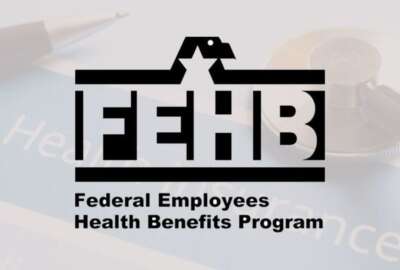Congress blames itself for duplicative programs
Faced with a 423-page report from the Government Accountability Office detailing potential duplication, fragmentation and overlap in nearly every corner of gove...
In a bipartisan show of self-loathing, lawmakers at a congressional hearing on duplicative programs said they agreed with the public’s low approval rating of Congress.
Faced with a 423-page report from the Government Accountability Office detailing potential duplication, fragmentation and overlap in nearly every corner of government, lawmakers blamed themselves for reducing oversight of federal programs on one hand, and creating new, redundant programs on the other.
Lawmakers have slashed the number of oversight hearings over the past 20 years, Sen. Tom Coburn (R-Okla.) told the House Oversight and Government Reform Committee. In addition, budget cuts have weakened GAO, Congress’s investigative arm, to the point where staffing is expected to drop to 1930s levels by the end of the fiscal year.
“We, as members of Congress, don’t know what’s going on,” Coburn said. “In our desire to please and to meet compassionately a need, we try to act. But we act without knowledge because we haven’t done the oversight.”
New areas of possible waste
The 2012 GAO report lists 51 new areas of potential waste on top of 81 areas published in last year’s report. The Departments of Defense and Veterans Affairs offer overlapping — and confusing — health care programs for veterans. The Departments of Agriculture and Housing and Urban Development oversee competing housing programs. Meanwhile, agencies are paying the Homeland Security Department for building risk assessments that DHS’ Federal Protective Service isn’t doing, leaving the agencies to move ahead with their own assessments.
And 83 percent of agencies’ various Science, Technology, Engineering and Math, or STEM, education programs overlap. Moreover, most of the programs have never conducted thorough self-evaluations to find out whether they are successful.
“One thing that surprises me out of this whole exercise that we’ve been doing for the past two years is how much we do not know about the effectiveness of many of these programs,” said GAO Comptroller General Gene Dodaro. “We really don’t have a lot of good information about what we’re getting for the value of many of these programs and activities.”
What’s more, he said, sometimes there isn’t a clearly documented need for a new program.
“There’s a perception that providing money fixes problems,” Dodaro said. “In some cases, part of our recommendations is to really tie funding to outcomes.”
While he stopped short of blaming lawmakers outright for the disconnect, Coburn accused Congress of lacking the leadership to consolidate programs.
“The responsibility lies on us because we, in fact, have created the mess,” by passing laws establishing new programs, he said.
White House also blames Congress
The Obama administration couldn’t agree more.
Congress has addressed just 39 percent of the recommendations GAO made in its 2011 report, Office of Management and Budget Controller Danny Werfel said in a memo posted on the White House’s website.
The executive branch has taken steps to address three-quarters of the issues directed to agencies, Werfel said, adding that the administration’s “Campaign to Cut Waste” was making government more efficient overall by reducing improper payments, consolidating data centers and selling off excess real estate.
The new report “is not comprehensive,” Werfel said. GAO finished its analysis before Obama released his fiscal 2013 budget proposal.
“In 21 areas highlighted by the GAO report — more than one-quarter of the total — significant reforms were proposed in the 2013 budget that were not taken into account by GAO,” he said.
The report did not consider President Obama’s recent request for Congress to reinstate his authority to consolidate agencies, beginning with six business-focused departments, either.
Werfel urged Congress to pass both pieces of legislation.
GAO found that four agencies offer 53 overlapping programs for entrepreneurs. Yet Dodaro refused to weigh in on what he said was a “policy decision.”
Overall, however, he said “innovative approaches are required.”
“I don’t think we’re organized properly to be able to tackle these problems, within the administration or within Congress,” he said.
Committee chairman Darrell Issa (R-Calif.) said he would not support Obama’s request for consolidation authority and called it “dead on arrival.” He pledged to “call for a thorough reorganization of government” led by a group similar to the Hoover Commission of the 1950s.
RELATED STORIES:
GAO: ‘Virtually all’ agencies may have overlapping programs
Legislative agencies’ 2013 budget requests spell reduced staff, cuts
Obama formally seeks agency-consolidation authority
Copyright © 2024 Federal News Network. All rights reserved. This website is not intended for users located within the European Economic Area.





